Why I struggled in Israel and Palestine
‘Conflict is the beginning of consciousness.’ – M. Esther Harding.
It’s been a year since we were in Israel and Palestine, and to be honest, I’ve struggled to find the words to write about being there. I feel extremely conflicted about having visited, and can clearly remember an invisible weight I hadn’t even realised I was carrying lifting off my shoulders as we crossed the border into Jordan after almost a week exploring Israel and Palestine.
At the moment, my social media is reminding me daily that I’ve been to Israel and Palestine. Facebook is throwing up those ‘one year ago you did this’ posts and Timehop is all over the photos I took in Tel Aviv, Jerusalem and the occupied West Bank. I can choose to ignore it, but I feel the time is right for me to say a few things about our trip, and to try to put into words some of the turmoil I felt whilst I was there.
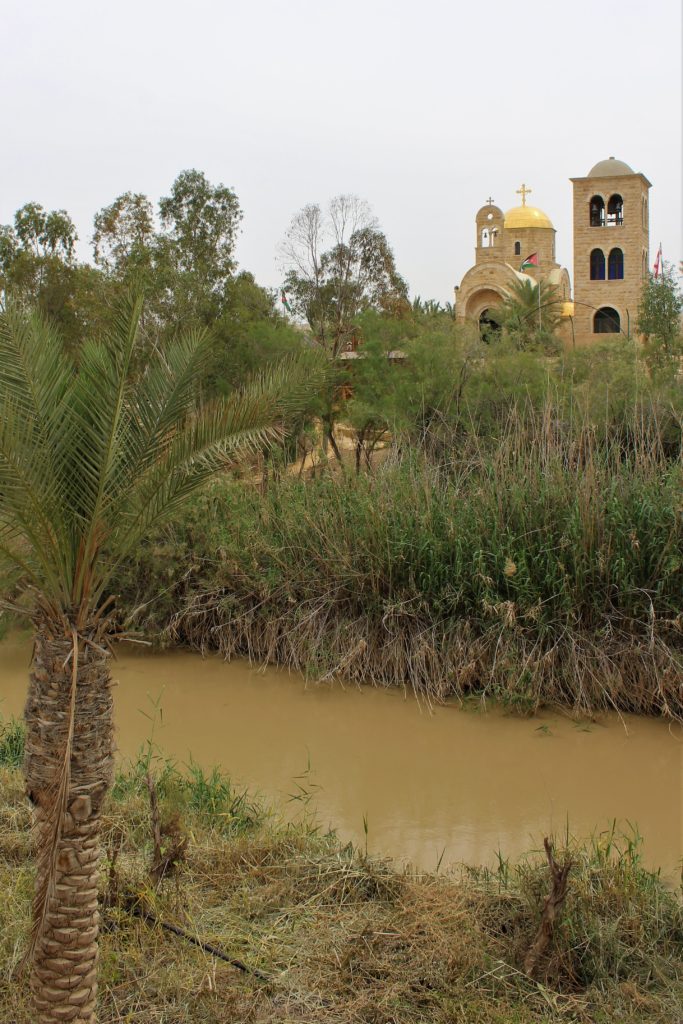
I was surprised how conflicted I felt about being there.
Israel and Palestine
Although I knew a little about the ongoing conflict between the Israelis and Palestinians before I went, I couldn’t possibly realise quite how troubled this would make me feel once I arrived. Not for us or our safety. Rather, it was the fact that we may be helping to fund the ongoing disputes just by being there and putting our money into the economy.
That played on my mind a lot, especially since there are constant reminders all around that the disputes are very much still happening. There were soldiers in most of the places we went, whether on duty or not, carrying their guns slung across their backs or around their necks like toys. And whilst we were fortunate not to experience an air raid, there were safety notices telling us what we should do in Tel Aviv if the siren went off. It set my nerves on edge.
On several occasions, during general conversation, telling remarks were made that demonstrated exactly what Jewish people tend to think about Muslims, and vice versa.
We stopped for coffee in the Jewish quarter in Jerusalem’s Old City, and were accosted by a Jewish man wanting to chat. When he asked where our hostel was, we did not divulge the exact location, but we made it clear that we were staying in the Muslim quarter. He immediately advised us against our choice, informing us with absolute certainty that we should not trust our hosts and that our valuables would be stolen from our rooms. We reassured him that the hostel was safe and our hosts friendly and welcoming, but he was not to be persuaded and even went as far as to give us a card for another, Jewish run, hostel.
And back at our hostel, when we told our Muslim host that we planned to do a Sandeman walking tour to explore Jerusalem, he proceeded to spend five minutes advising us against doing so. His argument? We would only learn about Jewish history and culture within Israel, we would not be told anything about Muslim culture and the Palestinians. While this example is less extreme than being told our valuables would be stolen because we were staying in a Muslim hostel, it was telling and showed us that Palestinians really want visitors to Israel to hear their side of the story.
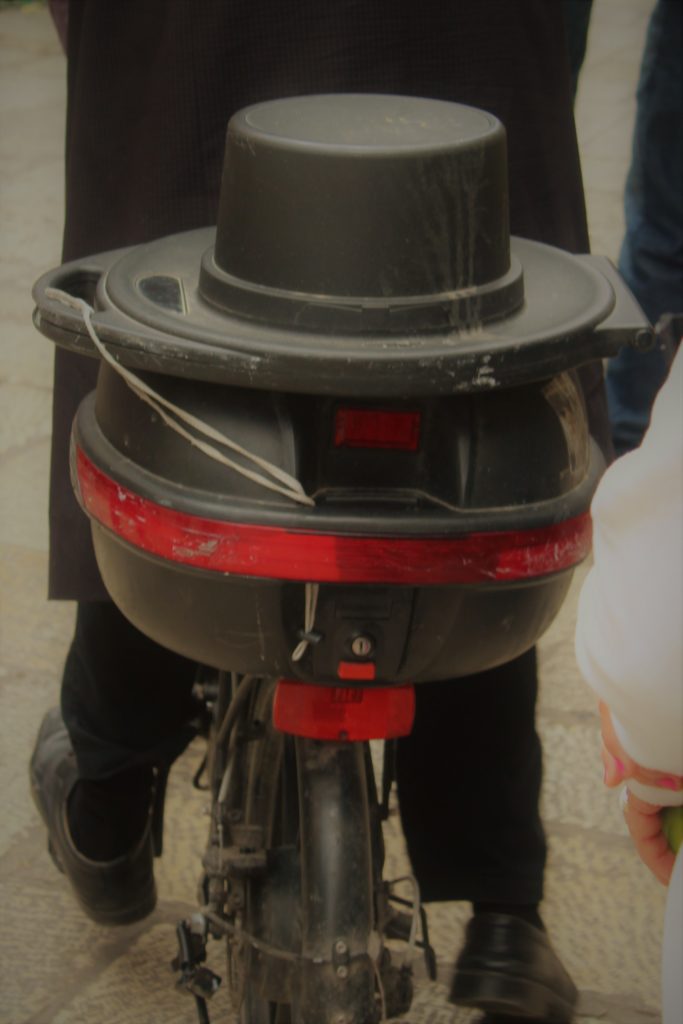
Jerusalem and Religion
The Old City in Jerusalem is chaotic and busy. It is a confusing tangle of narrow streets and alley ways winding through the four quarters: Armenian, Jewish, Muslim and Christian. The city is a melting pot for religion, and I admit, I occasionally struggled with the jarring mix of religious context. The vast majority of visitors to the city come because of their religion.
I found it somewhat overwhelming to be thrown in among so many individuals who were on pilgrimages. They came to this holiest of cities to be baptised, or to see the place where Jesus died and was resurrected, or to touch the Western Wall. The city is so sacred to so many, and so steeped in history and religion that it can be difficult to get past the emotion that many feel when they are in Jerusalem and enjoy other aspects of the city.
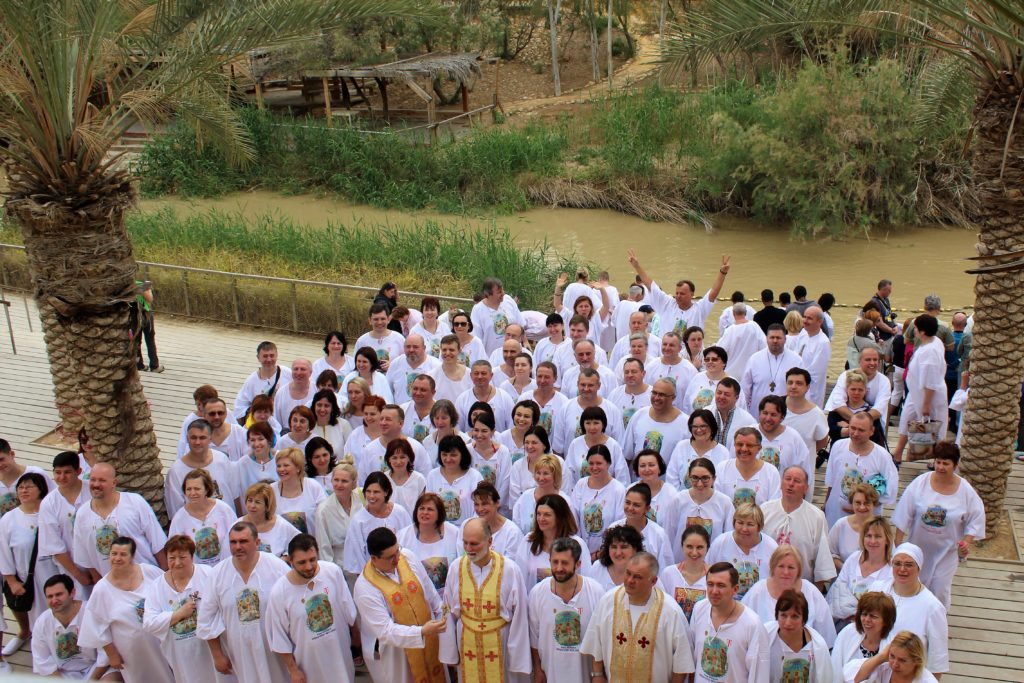
Well, at least, I found it difficult.
Mosques are pressed up against Orthodox churches and synagogues. The Muslim call to prayer echoes over the city four times a day, and mingles with the doleful tolling of bells. There is an assumption that, because you’re visiting Jerusalem too, you must also be religious. If you say that you’re not religious, the answer is met with skepticism, then criticism from some and questions from others. However, I must admit that I remain unmoved by religion and concerned about the bad that comes with the good.
This is a difficult topic to write about, but I’ll say this: I can acknowledge and understand that for many people, their faith and religion brings them comfort and peace. It provides them with a focus and a strength and brings solace to them. However, personally, I find it difficult to see beyond the conflict brought about by religion and the evils that are done in the name of a god or deity. So I struggled a little in Jerusalem, because of the assumption that others made about me being there. They thought that I too was religious, when I am quite vehemently not.
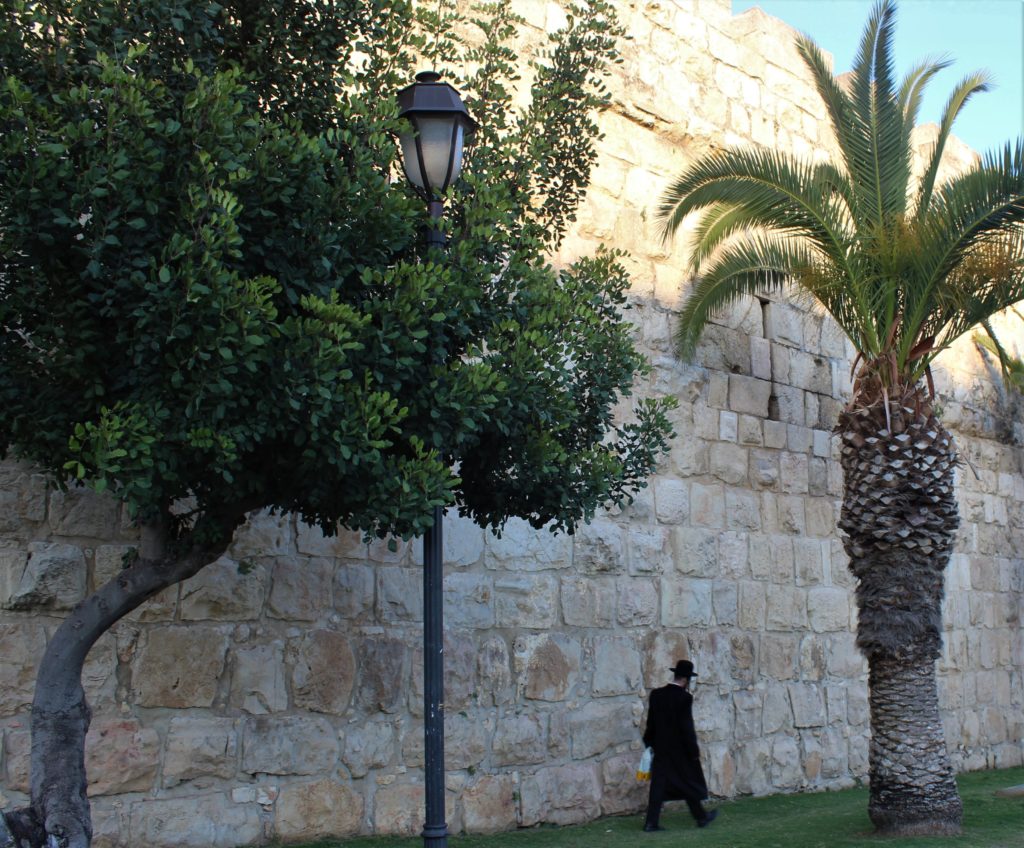
Experiencing Spirituality in Jerusalem
Whilst I am not a religious person, I can find a spirituality in the places I visit.
I had two experiences in Jerusalem that I’d describe as ‘spiritual’. For me, a spiritual experience is quite separate from religion. It’s more to do with the time and the place, the moment you find yourself in, being right there, centred and mindful. Everything else fades into the background.
The Call to Prayer
The first of my experiences happened at dusk on our first day in the city. We were walking the perimeter of the Old City. We had followed the city walls around in an anti-clockwise direction and were close to Dung Gate, overlooking the Palestinian side of the city. At this point, the road around the Old City is high up, so there is a view right across the valley. As the light faded, lights sprung up across the scene and began twinkling.
And quite suddenly, the call to prayer began. Minarets across the city sprang into life, with the haunting prayers echoing all around. The sky became darker and the call intensified as more and more prayers were hummed and crackled and wailed until the entire city seemed to be drowning, soaked in the atmosphere. We stopped and let the sound wash over us. There was something quite perfect in that moment – the view, the lights, the hush beneath the prayers, the evocative song rolling around us. I felt a frisson, an electric current on the air.
Download a short video of this moment here.
At the Western Wall
I spent my last evening in Jerusalem on my own, since my sisters had already travelled back to Tel Aviv. I wandered the Old City aimlessly, taking no particular path, apparently lost but always safe in the knowledge that I’d end up somewhere I recognised in the not too distant future. Cities with labyrinthine streets are often like that – you think you’re perfectly lost one minute, and the next you pop out in the main square where you ate your last meal.
This time, I wound up at the Western Wall Plaza. We’d been on our first day, making a beeline for it and arriving just as the sun was warming up and the light was becoming too bright and flat to take any good photographs. This time, the light was softer, yellow, and the atmosphere felt calmer, less frenetic.
Men and women were still coming to worship at the Wall. I stood and watched as they faced the Wall, chanting, rocking on their heels, all deep in worship. Swallows swirled overhead, circling everyone, chattering incessantly. They were joyful to watch, darting and skimming lightly on the air. They brought life and vitality to the scene. By stark contrast, people were singing nearby. Their song was melodic but melancholic, sweetly sad, and although I did not understand the words they were singing, I still seemed to understand the message.
People reached up as high as they could, touching the golden stones of the Wall and pushing notes, prayers and scraps of paper between the stones. At the bottom, the stones were darker with thousands of years worth of sweat and grime from people touching them. At the very maximum height a human can reach, there was a marked line where the stones became cleaner.
The whole scene, set off by the swooping swallows and the lilting song in the background, almost brought me to tears. Yes, I may not be religious, but I can understand to an extent why others are. That moment was powerful.
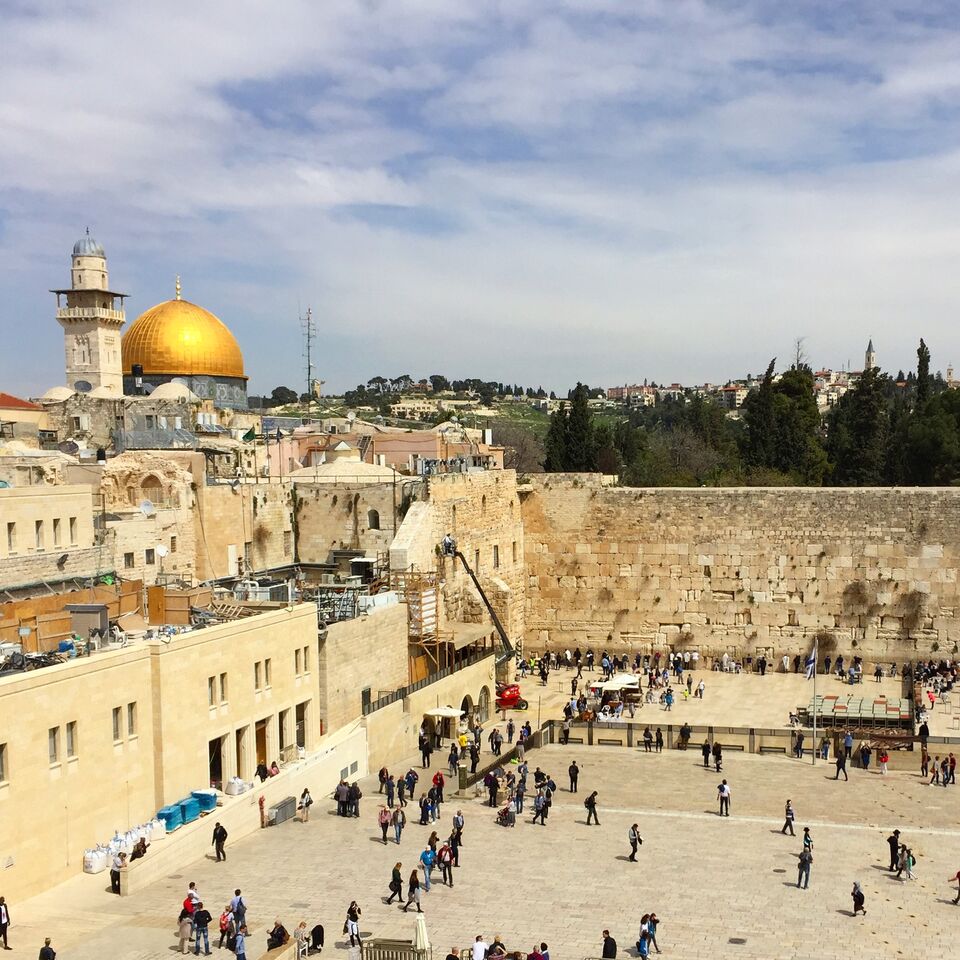
My Takeaways from Israel and Palestine
I never expected to feel so troubled whilst in Israel and Palestine. I mainly felt the discomfort whilst in Jerusalem, and couldn’t quite put a finger on it until I read the following passage in Dervla Murphy’s excellent book, Between River and Sea: Encounters in Israel and Palestine.
‘…violence has polluted Jerusalem… To me, the city now feels sick rather than sacred, its energies soured.’
This statement rang true to me and my time in the city. Religious symbolism is everywhere you turn, and yet there are undercurrents of tension constantly swirling under the surface. It left me feeling like I was watching over my shoulder the entire time. And beyond Jerusalem, in the occupied West Bank and back in Tel Aviv, I felt disquieted.
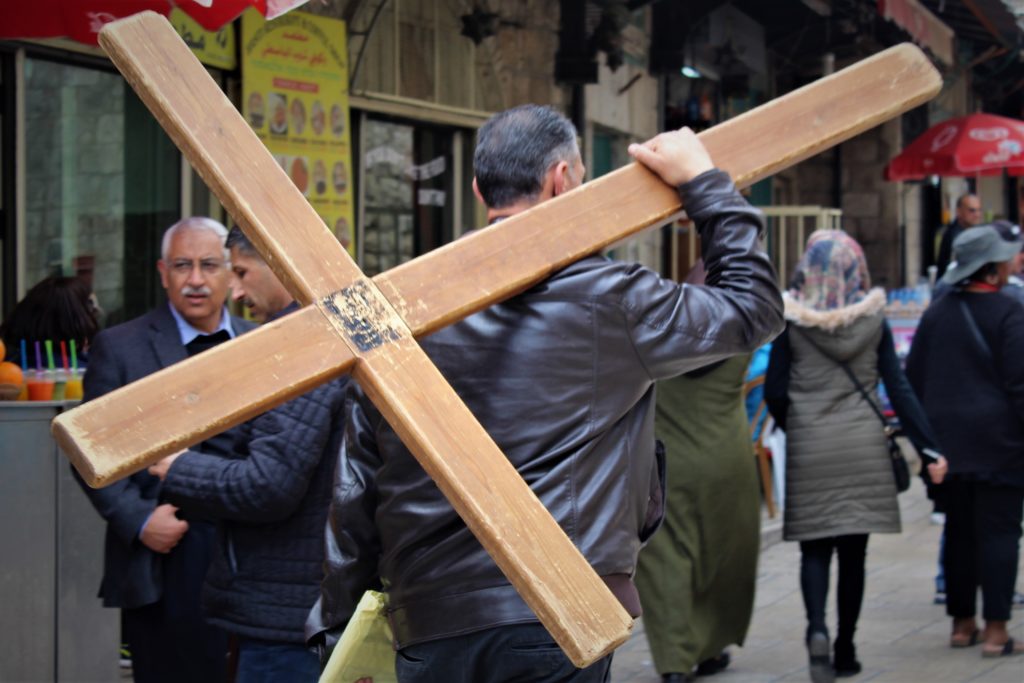
I am not writing this post to put anyone off travelling to Israel and Palestine if that’s where you really want to go.
My friend travelled there a few months after me and she loved her time there. I merely want to write about my experiences and let you know how I felt while I was there. Everyone experiences countries differently. Travel is entirely subjective and I would always encourage people to make up their own minds.
One visit was enough for me. While there were elements of my time there that I enjoyed (the shakshuka was incredible), the turmoil I felt whilst there and the opposition I feel towards the ongoing Israeli/Palestinian conflict puts me off going again. I’d prefer to travel to new countries to make my mind up about them (here’s looking at you, Nepal!), or return to old favourites and enjoy further adventures (New Zealand…).
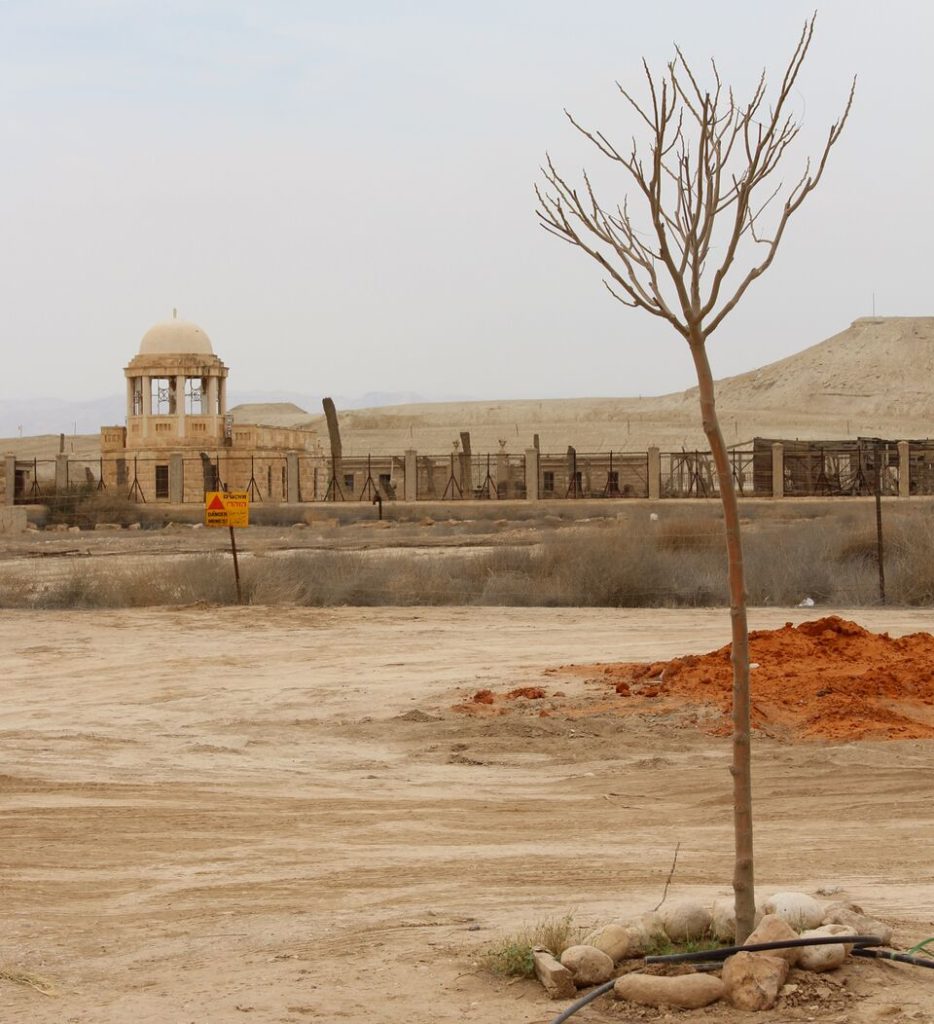
**********
On the train back to Tel Aviv from Jerusalem, I have a window seat and I gaze out across the landscape. The train twists and turns through arid valleys and gorges in the Judean Hills, trundling along its tracks as it eases down towards the flatter farmland where it then picks up speed. The journey is nearly two hours, and as we head into Tel Aviv, the scenery changes once again. High rises fill the window, roads run overhead and the tracks dip into underpasses.
I become aware of graffiti on the concrete slabs of a runoff channel as we slide past. Rows upon rows of coffins, some covered in Palestinian flags, some covered in Israeli flags.
I later learn that this is the wall running along the Ayalon Highway and after some digging, I find images on the internet of the graffiti, having failed to take any myself in the moment.
The graffiti seems to sum up my time in Israel and Palestine.
I flew there thinking I knew a reasonable amount about Israel and Palestine; it turns out I know very little.
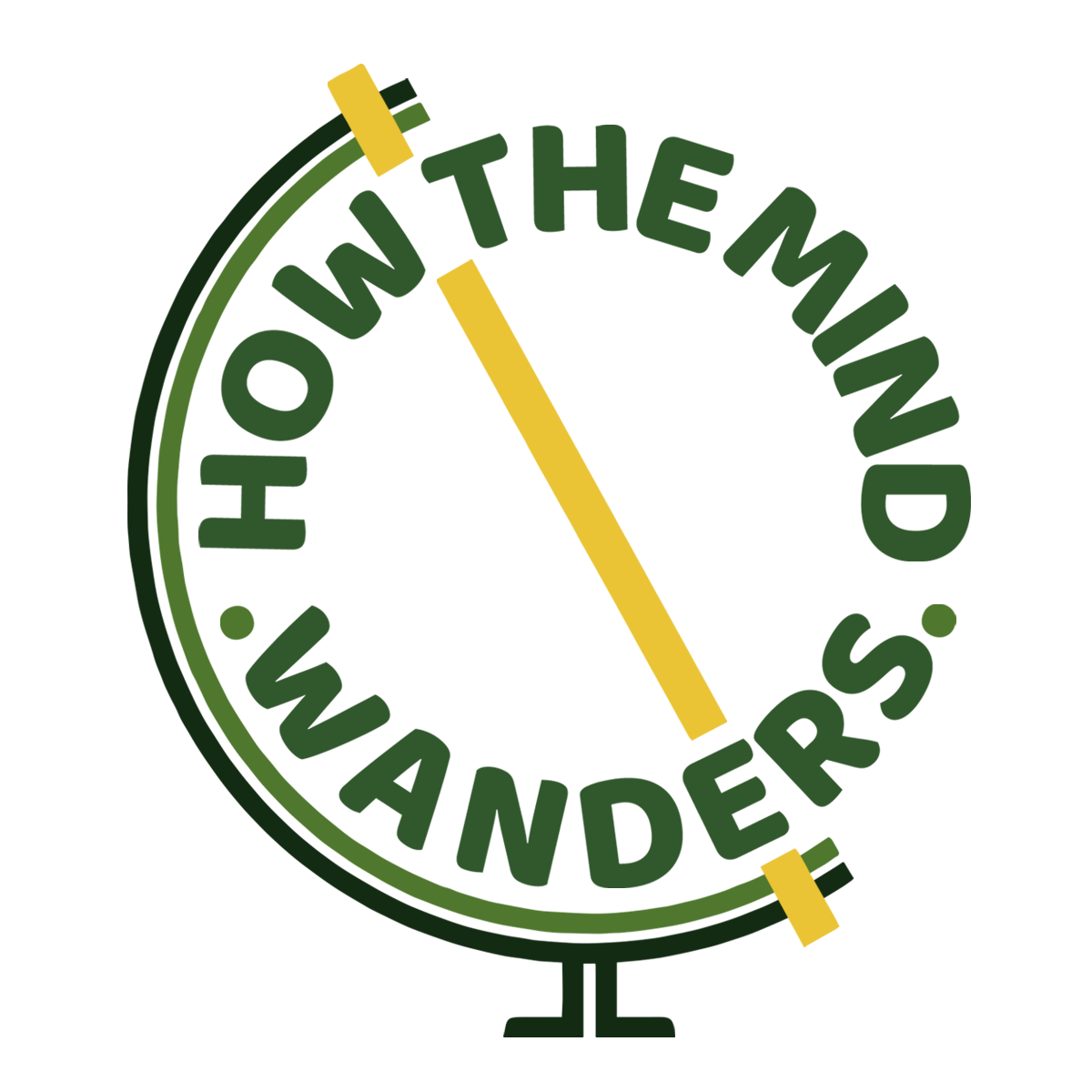
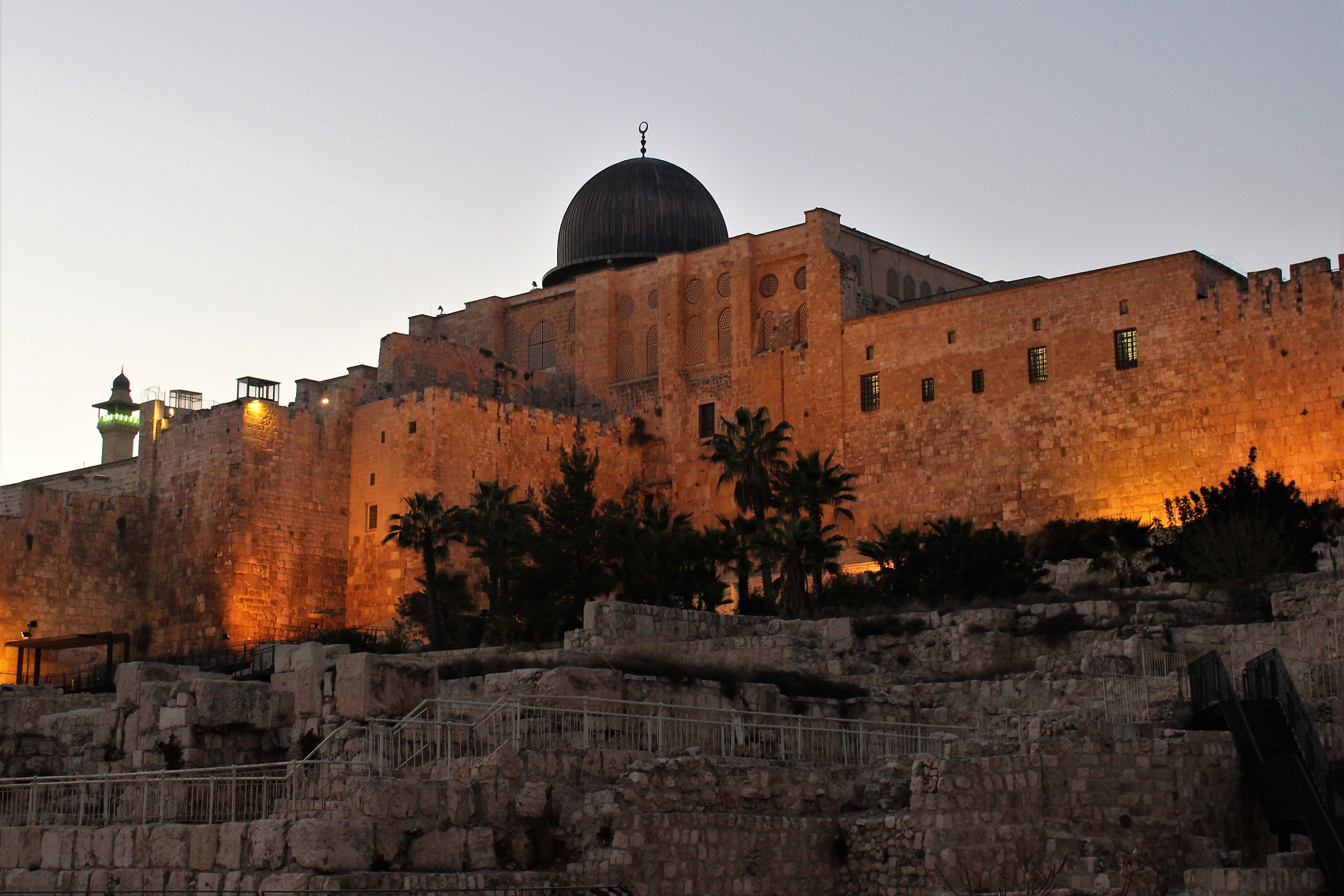
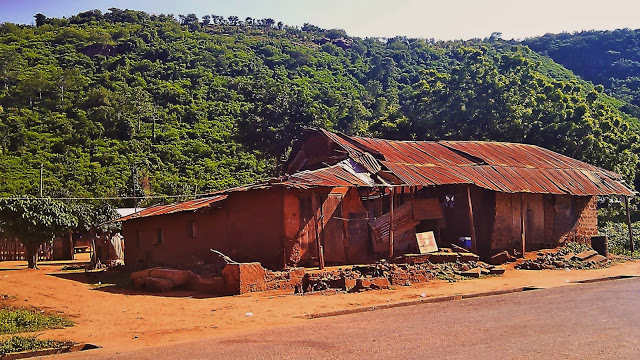
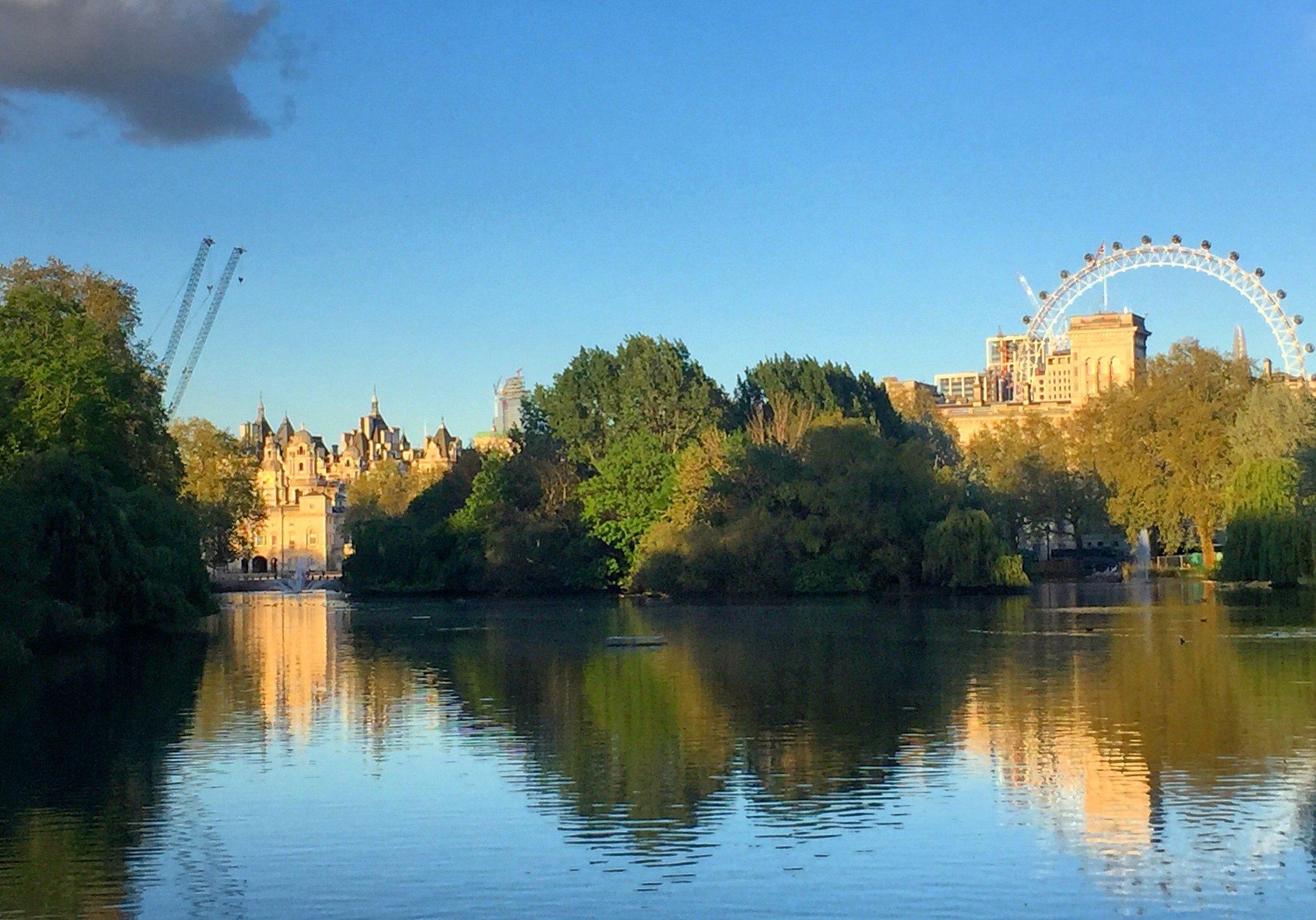
2 thoughts on “Why I struggled in Israel and Palestine”